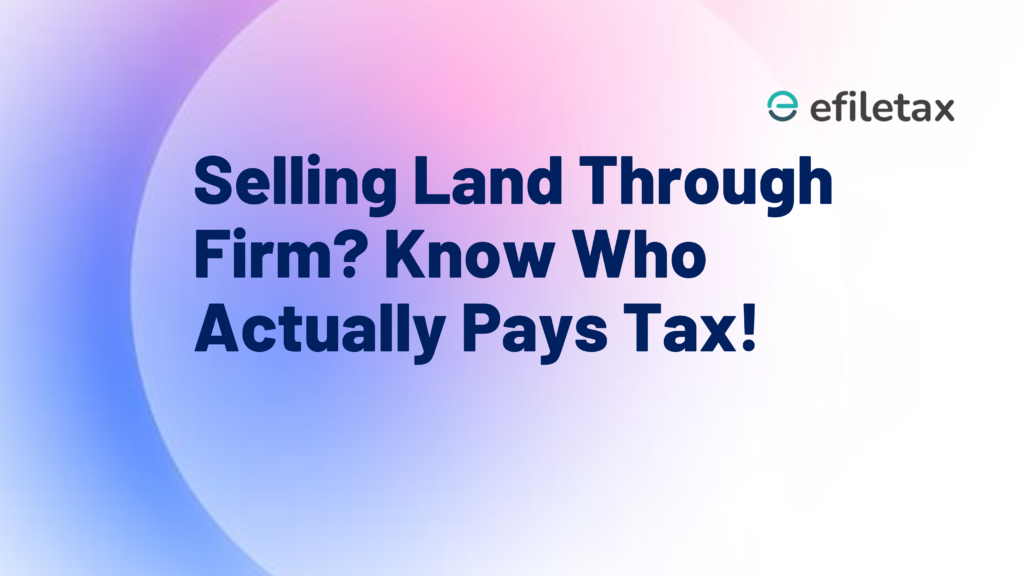
When a Firm Sells Land: What’s Taxed and What’s Not?
When a firm sells land, confusion often arises — does the firm pay tax, or do the partners?
A recent ITAT (Income Tax Appellate Tribunal) decision brings much-needed clarity.
In simple terms:
- If the land belongs personally to the partners → Tax event happens at partner level, not firm.
- If the land and structures belong to the firm → Firm must pay tax on the built assets.
This distinction can significantly change your tax liability.
Key Legal Principles You Must Know
Here’s how the latest ruling simplifies it:
| Ownership Type | Who Pays Tax? | Exemption Available? |
|---|---|---|
| Land owned by partners personally | Partners individually | Section 54/54F exemption possible |
| Structures (buildings, sheds) owned by firm | Firm | Normal capital gains tax applies |
Breakdown: How the ITAT Ruling Impacts Tax Strategy
- Land Registered in Partner’s Name:
- Treated as personal asset.
- Gains taxable in individual hands, not firm’s.
- Eligible for exemption under Section 54 (house property) or 54F (other assets).
- Building or Structures Owned by Firm:
- Considered business assets.
- Sale proceeds taxable under Capital Gains for the firm itself.
- No personal exemptions allowed.
Practical Steps to Save Taxes When Your Firm Sells Land
- Segregate Ownership Clearly:
Keep land and building agreements separate.- Claim Proper Exemptions:
If selling personal land, claim Section 54 or 54F wisely.- File Correct Returns:
Partners and firm must show respective gains properly to avoid scrutiny.- Consult Early:
Smart Planning Can Save Huge Taxes
When a firm sells land, understanding ownership is the key to tax savings.
Separate documentation, strategic exemption planning, and proper filing can prevent unnecessary tax hits.